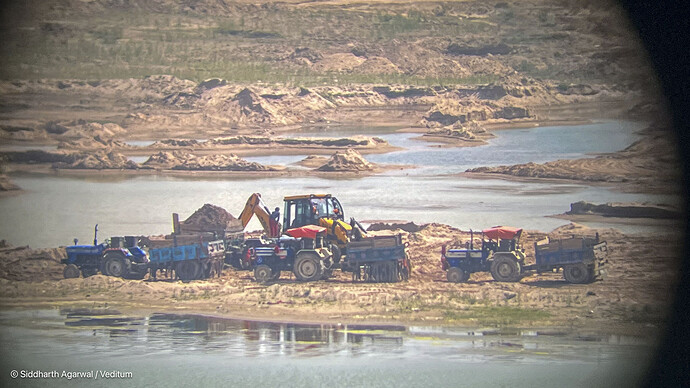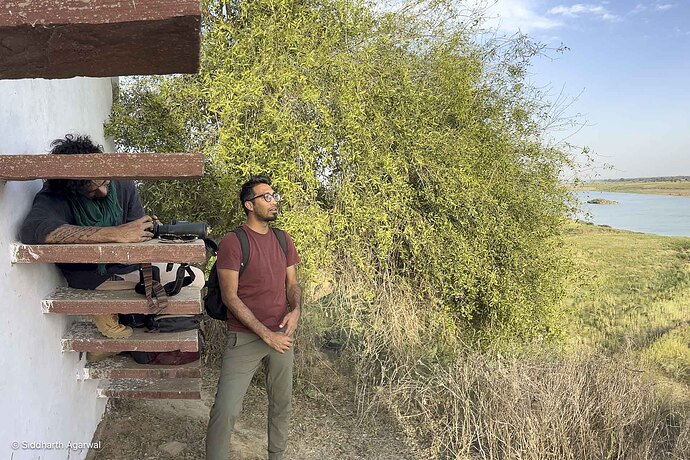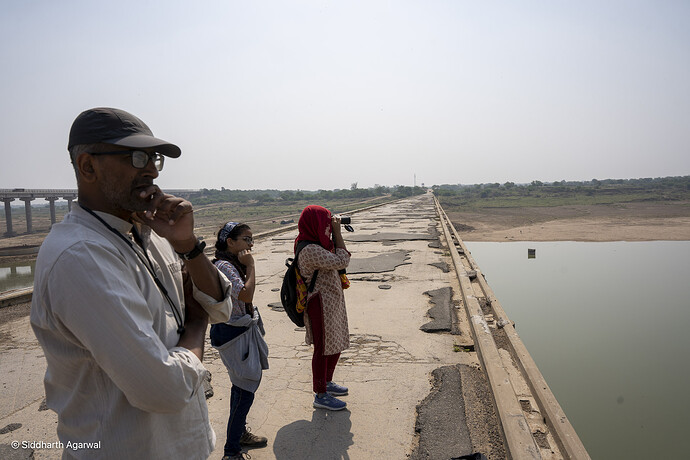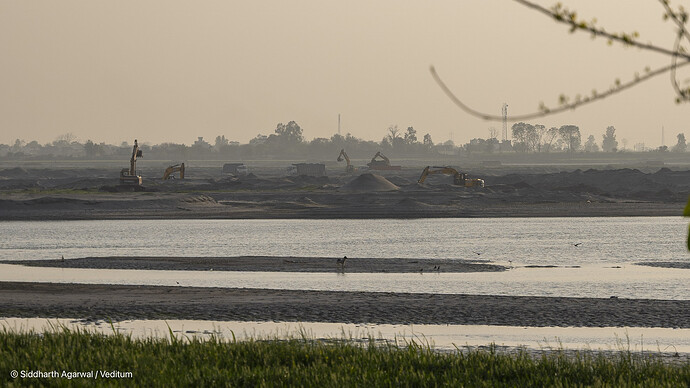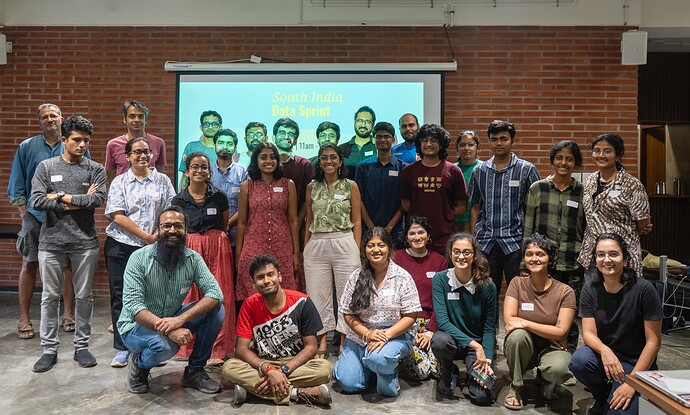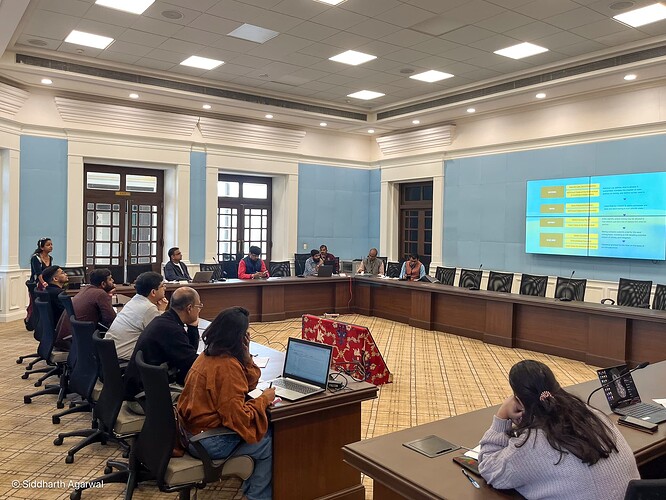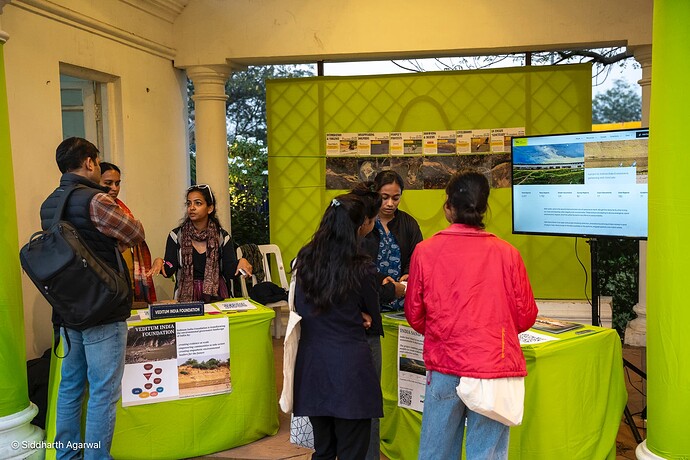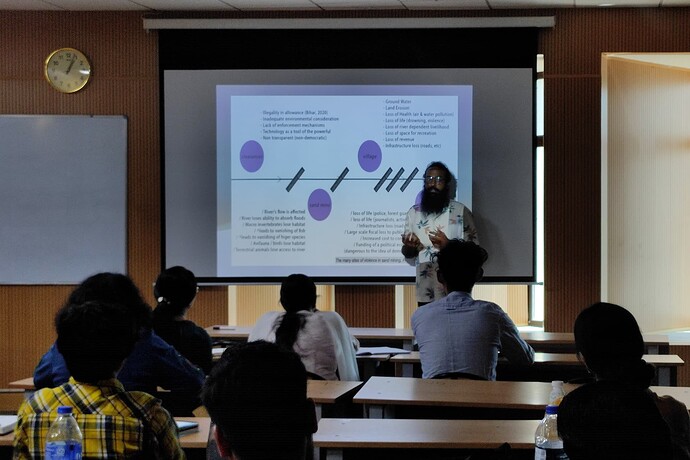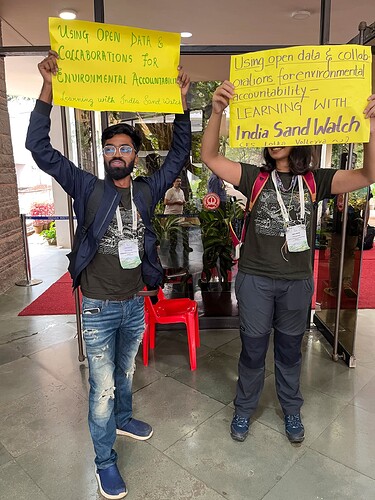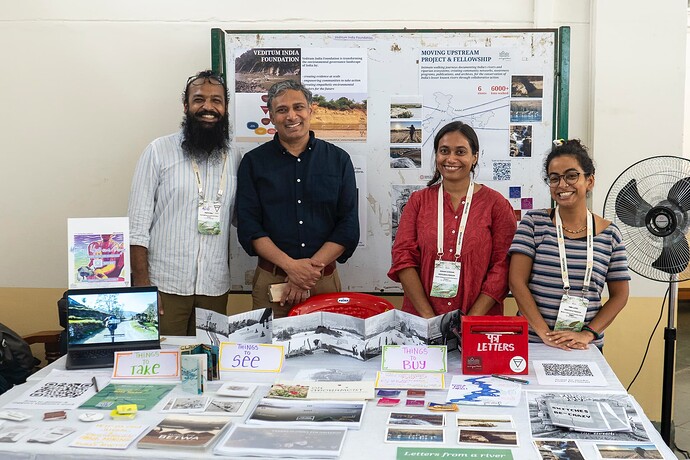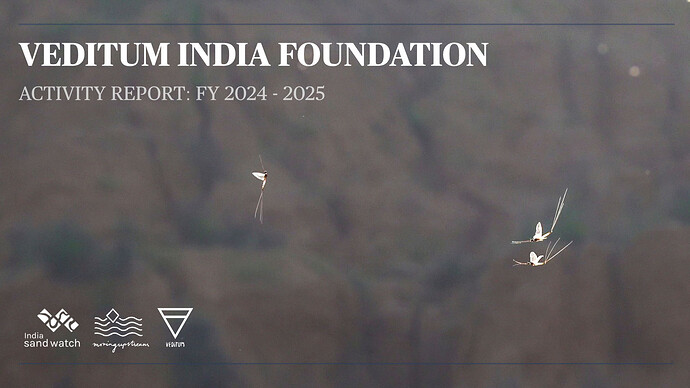Hello everyone, this is Veditum India Foundation’s first post on Grove. Happy to be sharing project updates here and possibly find partners and collaborators!
Veditum is a not-for-profit research and media organization based out of Kolkata, India - registered as a Section 8 company. We work at the intersection of environmental, cultural and social challenges. Our current work is centered on Indian rivers, and life in and around these rivers. We aim to create publicly accessible records – ecological, anthropogenic, hydrological, social, and even more contextual layers – of these spaces and of people’s stories.
It is also our constant endeavor to work in partnership with other organisations and collecives. Some of our partners include India Rivers Forum (IRF), International Rivers (IR), Let India Breathe (LIB), Manthan Adhayan Kendra, Megh Pyne Abhiyan (MPA), Ooloi Labs, Out of Eden Walk (OOEW) and South Asia Network on Dams, Rivers and People (SANDRP).
- Overall updates (since the last update)
This is our first update on Grove. In mid 2022 we received support from Rainmatter Foundation towards a new project that we’ve undertaken - Sand Mining Monitoring - which is part of our larger efforts in the space of environmental accountability. We’re executing this project in collaboration with Mumbai based Ooloi Labs. Please check them out here: https://www.ooloilabs.in/
As part of our work, we’ve also been investigating, reporting and analysing the sand mining sector in India for the past half decade. Based upon our understanding, we’ve designed this new platform - Sand Mining Monitoring - which is designed to fulfill two main functions:
-
Act as a public facing archive of all sand mining related activity in India - news articles, survey reports, guidelines, tender documents, legal proceedings.
-
Offer a platform and format for users to document instances of sand mining across India in the form of case files, link the case files to the different documents mentioned above (and more).
This comprehensive database can then be used by individuals or collectives to monitor this activity pan India. The platform will also enable connections across geographies, between people who may be able to create larger impact / change or even a simple change in their own lives, by working together.
We imagine that this platform will be of use and interest to different types of actors: affected citizens, concerned citizens, activists, environmentalists, journalists, academics, civil society organisations, and even the administration (should they choose to honestly engage).
This platform is currently invite only, so please write to me at [email protected] and we will send you an invite!
- Progress on the goals listed while on-boarding
Our goals for the first year for this project include:
- Setting up the platform from scratch (this is built on the Open Knowledge Framework by Ooloi Labs) - this is somewhat done and now we’re in an iterative process of improvements and changes.
- Hiring a new member - we have a new member who joined us in October 2022 for this particular project.
- Testing the platform and building collaborations and partnerships - we’ve been testing the platform since October 2022, and are currently working on onboarding institutional partners.
- Addition of new users - Starting December, we have initiated introductory sessions and workshops, where we have been inviting members from across our network who we have worked with in the past and / or have shown interest in the subject.
- Addition of data - We have certain targets on number of news reports, tender documents, survey reports, court documents and case files that we want to add to the platform by the end of year 1. We’ve been able to add:
- 266 news reports
- 20 district survey reports
- 20 tender documents
These documents are tagged with various metadata that make them searchable through various simple filters of river / state / district / sub-district. This is info that we have been able to add through the testing phase and are hoping for the numbers to pick up with new users - who have already started adding data to the platform.
Most modules are being updated based on inputs of users, and some are seeing a significant overhaul. The case file module will see a rise as we have more workshops in the coming months.
- We hope to have fresh eyes on the platform, and will soon be engaging interns as well as designers / analysts in Summer 2023 to create outputs based on the data on the platform.
- Media reports - We had also imagined media reports emerging based on the platform data. Now that data addition is happening, we’re continuously engaging media persons to publish based on this information. Including state / district / tehsil / river profiles on sand mining.
- Any challenges
- The main challenge for us continues to be the same reason why we started this project in the first place - availability of data in the public domain. But we’re hoping that with a more geographically and linguistically diverse user base, we will be able to address this to some extent.
- Another challenge that we see is to be able to get users to be comfortable with geo-cordinates and maps. Any tips on this will be appreciated.
- Reaching out beyond our 1st to 3rd degree networks - no matter how hard we try, there are limits to our networks. A significant challenge is going to be to break out of this limit to find more individuals and organisations who can add to and make use of the platform.
- Any new avenues of collaboration (with other Grantees of RCF or other NPO/NGO)
Just continuing from the challenges section, there’s a potential for collaboration in all the mentioned challenges. Plus, we’d love to see others NGOs / NPOs / academic organisations / media orgs and collectives collaborating with us on:
- Data addition and visualisaiton (numeric and geospatial data)
- Onboarding of more users
- Communications - not just social media, but also as films, reports, comics, etc
- Hosting of physical zonal workshops (which we seek to begin in another 3-4 months)
- Will update with more possibilities as they develop
- Highlights from the initiatives being undertaken as part of your organization
In something that came as a surprise to us, this project was shortlisted for the Agami Prize 2022, under the Idea Prize category. Their website says about the Idea Prize:
“The Idea Prize will be awarded to two early-stage initiatives that could innovatively transform our systems of law and justice. These initiatives are testing and/or building proof of concept for their ideas. The Idea Prize is offered in memory of Late Justice R Jayasimha Babu.”
And through our sessions and workshops, we’ve been getting great feedback from the community. It reassures us to see that this platform is serving a felt need in this sector.
- Outcomes you are chasing for the next 6 months (these can remain the same if unchanged since the last update)
Our future outcomes on this project continue to be increased data addition, partnerships and publication on the same lines as described earlier.
- (please use this section to let us know of the impact and reach of your work since the last update).
This is our first update!
- Can Rainmatter be of help with anything at all
With respect to this platform: As we move ahead, any help with communications advise and media partnerships are welcome.
- Any additional details you would like to provide
Please checkout the full scope of our work on our website - www.veditum.org, and reach out to us if you’d like to support out work
We’re on social media on the following links if you’d like to come hang out and / or get updates:
Facebook: http://facebook.com/veditum
Twitter: http://twitter.com/veditum
Instagram: http://instagram.com/veditum
Linkedin: https://www.linkedin.com/company/veditum/
Our newsletter lives here: http://veditum.substack.com/
- Please also share any images or videos that you have documented as part of your work
We will add images and videos in the next update!





